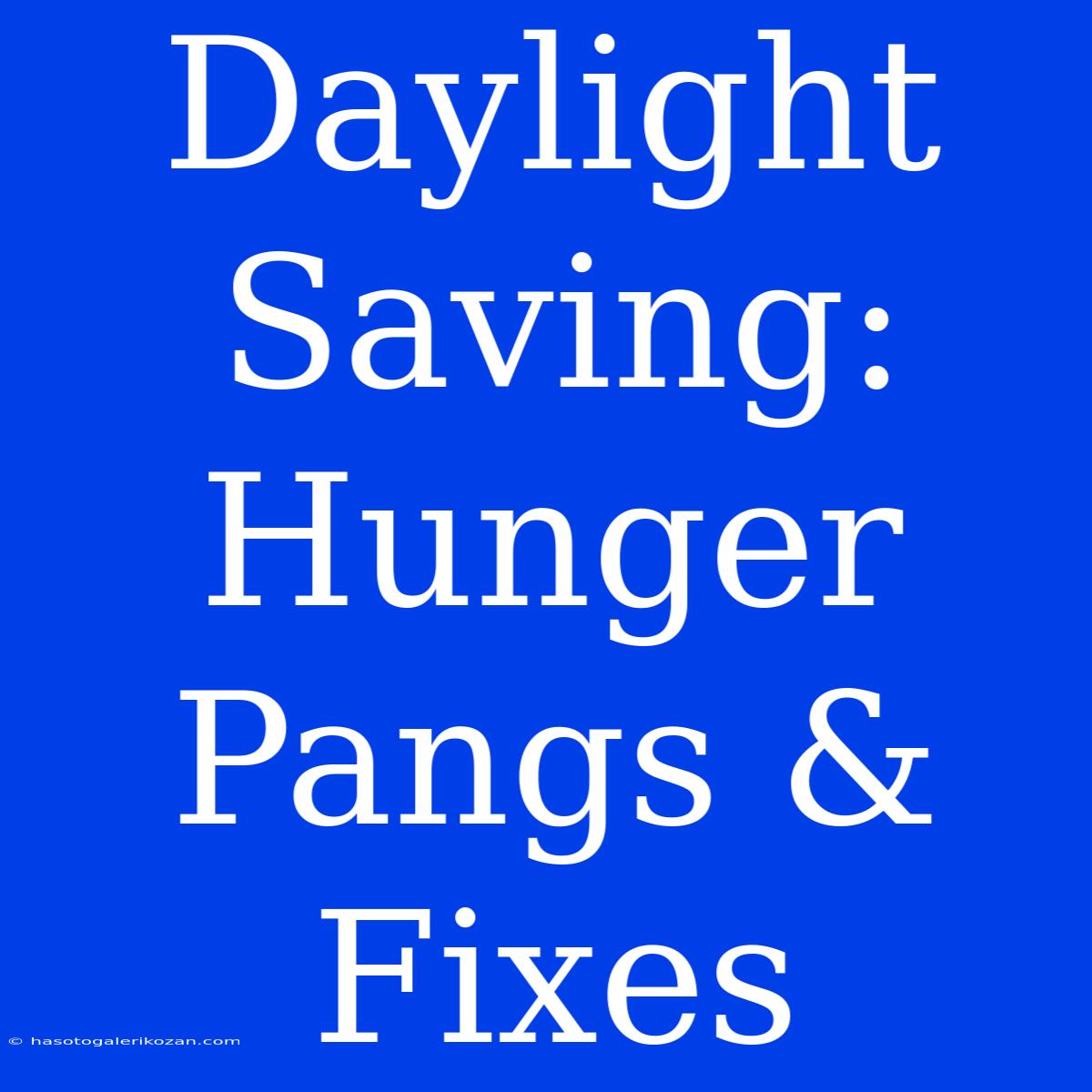Daylight Saving: Hunger Pangs & Fixes
Daylight Saving Time (DST) is a double-edged sword. On one hand, it gives us more daylight hours for outdoor activities and boosts the economy. But on the other, it disrupts our internal clocks, making it more difficult to maintain healthy eating habits. This can lead to increased hunger pangs, cravings, and even weight gain.
Why Daylight Saving Disrupts Our Appetite
1. Messing with Our Circadian Rhythm: Our bodies are programmed to operate on a 24-hour cycle, known as the circadian rhythm. This rhythm dictates our sleep-wake cycle, hormone production, and even our appetite. DST shifts this natural rhythm, throwing off our hunger signals.
2. Shifting Mealtimes: The change in daylight hours can lead to adjustments in our mealtimes. Eating later in the evening, especially when sleep is disrupted, can affect our metabolism and increase our risk of gaining weight.
3. Increased Stress & Cravings: The adjustment to DST can be stressful for the body. This stress can trigger cravings for sugary, fatty foods, which provide a temporary boost in energy and mood.
Combatting DST Hunger Pangs
1. Prioritize Sleep: Getting enough sleep is crucial for regulating hunger hormones and maintaining a healthy appetite. Aim for 7-9 hours of sleep, even during the transition period.
2. Stay Hydrated: Dehydration can be mistaken for hunger. Make sure you are drinking plenty of water throughout the day, especially when you feel hungry.
3. Plan Your Meals: Schedule your meals and snacks to avoid skipping meals or overeating. This will help maintain consistent blood sugar levels and reduce hunger pangs.
4. Choose Nutrient-Rich Foods: Focus on consuming foods rich in protein, fiber, and complex carbohydrates. These foods will keep you feeling fuller for longer and reduce cravings.
5. Mindful Eating: Practice mindful eating by paying attention to your body's cues and eating slowly. This allows your brain to catch up with your stomach and prevent overeating.
6. Exercise Regularly: Physical activity helps regulate your appetite and reduces stress, leading to better food choices. Aim for at least 30 minutes of moderate-intensity exercise most days of the week.
7. Reduce Caffeine & Alcohol: Both caffeine and alcohol can dehydrate you and interfere with your sleep, increasing hunger and cravings.
8. Cook More Meals at Home: Cooking at home allows you to control the ingredients and portions, helping you make healthier choices.
9. Seek Support: If you're struggling with DST-related hunger pangs, reach out to your doctor or a registered dietitian for guidance and support.
By understanding the impact of DST on our bodies and implementing these strategies, we can navigate the transition period successfully and maintain healthy eating habits. Remember, managing hunger pangs is a journey, not a sprint.
